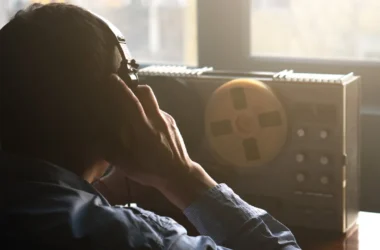Actor and entrepreneur Ashton Kutcher has waded into hot water again after he suggested that AI could someday be used to create Hollywood-quality movies without the need for studios, actors, or crew.
Kutcher’s comments came during an on-stage conversation with former Google CEO Eric Schmidt at the Berggruen Institute, a Los Angeles, Calif.-based think tank last week. A video excerpt from the exchange has since been set to private and is no longer visible on YouTube.
The co-founder of Schmidt Futures asked Kutcher what the future holds for Hollywood in the age of AI. In response, Kutcher questioned why—when tools like Sora AI are available—a filmmaker would go through the trouble of shooting on location.
“Why would you go out and shoot an establishing shot of a house in a television show when you could just create the establishing shot for $100? To go out and shoot it would cost you thousands of dollars,” Kutcher said, according to a report by Variety. “Action scenes of me jumping off of this building, you don’t have to have a stunt person go do it, you could just go do it.”
In February, OpenAI unveiled its Sora AI model that uses text-based instructions to create minute-long, high-definition videos. Sora is currently in an invitation-only closed beta, but Kutcher said he had early access.
Kutcher went further, suggesting that content creators could use the AI model to create their own movies using content they find online—omitting acknowledgement of the obvious copyright and intellectual property ramifications of his suggestion.
“You input the shot that you want to see or scene that you want to see, the trailer that you want to watch, and it invents that thing,” Kutcher said, adding this would lead to a proliferation of new content.
That tidal wave of new, AI-facilitated content, Kutcher said, would change the paradigm of how movies are made, and how success is measured.
“The bar is going to have to go way up because why are you going to watch my movie when you could just watch your own movie?” he said.
His colleagues in the entertainment industry strenuously disagreed on social media.
“Not even AI could make a movie where Ashton Kutcher is a good actor,” comedian and actor Gianmarco Soresi wrote on Twitter.
Many critics pointed out that Kutcher is co-founder of an investment fund focused on AI, and that his comments clearly support the disruptive technology and not the industry being disrupted.
“The fact that Ashton Kutcher has a venture capitalist firm that is currently investing in AI should have been disclosed,” tweeted Alice Herring, who lists membership in The Animation Guild in Hollywood. “He’s not speaking as a filmmaker (because he’s never been a director, DP, writer, or editor), he’s speaking as a salesman for investments.”
Kutcher responded to the backlash late Thursday, posting on Twitter that he does not think “AI will replace the film industry or creative arts.”
“It’s an amazing tool that we should learn to work with to become more prolific and efficient as [artists],” he wrote. Acting like it doesn’t exist will be catastrophic.”
Kutcher recently courted controversy for another tech project he launched with wife and fellow actress Mila Kunis.
“If you’re wondering if Ashton Kutcher also fell for the Metaverse, crypto, and NFTs… yes. The answer is yes,” Lincoln Michel, author of “The Body Scout,” wrote, referring to Kutcher and wife Mila Kunis’ Stoner Cats NFT project.
Stoner Cats remains in limbo after the production was slapped with a notice from the U.S. Securities and Exchange Commission (SEC) that it had violated federal securities laws when it sold NFT passes to watch the show in September. The federal regulator hit the Stoner Cats project with a $1 million fine.
In 2023, the union members of the Writers Guild of America (WGA) and the Screen Actors Guild-American Federation of Television and Radio Artists (SAG-AFTRA) took to the picket lines after negotiations with the Alliance of Motion Picture and Television Producers (AMPTP) broke down over a myriad of issues including the use of generative AI in film and television productions.
The strike lasted over six months before contract negotiations were resolved in September. “In a contract valued at over one billion dollars, we have achieved a deal of extraordinary scope that includes ‘above-pattern’ minimum compensation increases, unprecedented provisions for consent and compensation that will protect members from the threat of AI,” SAG-AFTRA wrote on Twitter.
Edited by Ryan Ozawa.
Source: Decrypt




